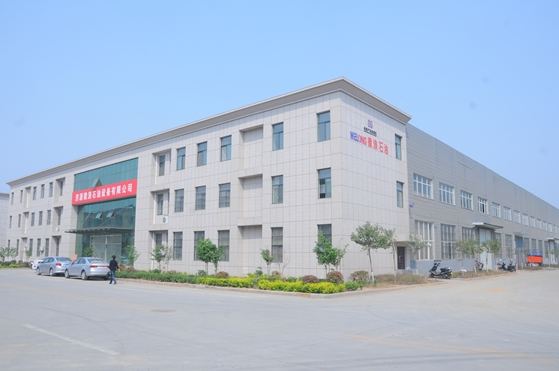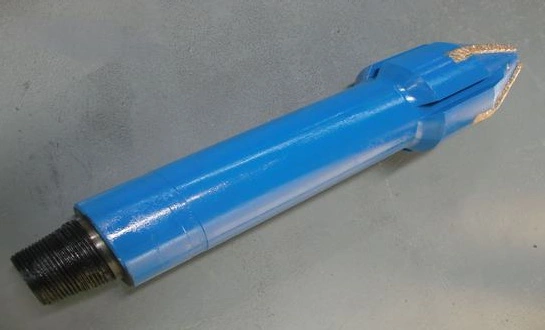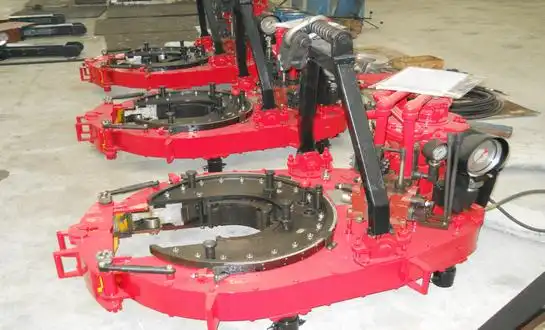Why customization matters for rolling mill rolls in complex operations
Meeting Specific Steel Grade Requirements
Modern steel mills produce a wide variety of steel grades, each with its own set of specific requirements for mechanical properties, surface finish, and overall quality. To meet these diverse needs, rolls must be tailored to suit the unique demands of each grade. Whether it’s ultra-high-strength steel for automotive applications or advanced high-strength steel for construction, customized rolls ensure the desired characteristics are achieved during the rolling process. By optimizing the hardness, wear resistance, and surface finish of the rolls for each grade, mills can consistently produce high-quality products. This precise engineering also contributes to reducing defects, minimizing material waste, and enhancing overall production efficiency. Customized rolls, therefore, are essential in maintaining stringent quality standards while meeting the increasingly complex demands of the steel market.
Optimizing Operational Efficiency
Tailoring rolling mill rolls to the specific needs of each operation can significantly improve operational efficiency. When rolls are designed with the mill's precise conditions in mind, they tend to perform better, reducing the frequency of roll changes and minimizing downtime for maintenance. Customized rolls are built to last longer, contributing to fewer interruptions and a smoother production process. In addition to extended roll life, these custom solutions help to maintain consistent product quality throughout the production run. Another advantage is the reduction in energy consumption, as optimized rolls facilitate more efficient material handling and reduce friction during the rolling process. As a result, steel mills can achieve significant cost savings, which enhances overall productivity and profitability.
Addressing Unique Challenges in Complex Steel Operations
Complex steel operations often encounter unique challenges that require specialized solutions. Standard, off-the-shelf rolls may not always address specific issues such as thermal fatigue, surface defects, or challenges in achieving complex rolling geometries. Customized rolls are designed to solve these problems, providing the steel producer with a solution that fits their exact needs. For example, rolls designed to withstand extreme temperatures or handle difficult-to-process materials can help overcome operational bottlenecks and reduce defects. By working closely with roll manufacturers, steel producers can develop innovative, customized solutions that tackle these complex challenges. The result is a more efficient production process, higher-quality steel products, and a smoother overall operation.

Tailoring roll metallurgy and design to specific steel grades
Advanced Alloy Compositions for Enhanced Performance
The metallurgy of mill rolls is a critical factor in their performance and longevity. Customized rolls often feature advanced alloy compositions that are carefully formulated to match the properties of the steel being rolled. These alloys may include elements such as chromium, molybdenum, and vanadium, which contribute to improved hardness, wear resistance, and thermal stability. By fine-tuning the chemical composition of the roll material, manufacturers can create rolls that maintain their integrity even under the most demanding rolling conditions.
Innovative Surface Treatments and Coatings
Surface treatments and coatings are another key factor in maximizing the performance of mill rolls. The application of specialized surface treatments, such as nitriding or chrome plating, can drastically improve the wear resistance and thermal properties of the rolls. These coatings also reduce friction and minimize the risk of steel adhesion to the rolls, which can otherwise lead to defects or damage. Advanced ceramic coatings are also increasingly being used for their ability to withstand extremely high temperatures and provide an additional layer of protection against abrasion. By selecting the appropriate surface treatment for each steel grade, producers can not only extend the life of the rolls but also achieve higher-quality surface finishes on the rolled products. This tailored approach helps ensure that each batch of steel meets the stringent quality standards expected in industries such as automotive, aerospace, and heavy construction.
Optimized Roll Profiles for Precise Shape Control
The precision of roll profiles plays a crucial role in achieving the desired shape and thickness of the final product. Customized mill rolls are designed with specific profiles, including tailored crown profiles, edge shapes, and surface textures, to meet the exact requirements of various steel grades. By optimizing these profiles, manufacturers can achieve consistent dimensional accuracy and superior surface quality. For instance, automotive and aerospace industries, which demand very tight tolerances, benefit from rolls that are finely tuned to deliver products with exact thicknesses and smooth surfaces. This level of precision not only enhances the quality of the steel but also contributes to overall process efficiency, as less rework or material wastage is needed. Whether it’s for high-strength steels or specialized alloys, the ability to precisely control the shape and finish of the product is essential in producing materials that meet the exacting demands of modern industries.
Processes involved in manufacturing customized mill rolls
Advanced Casting and Forging Techniques
The manufacturing process for customized mill rolls begins with the careful selection and preparation of raw materials. Advanced casting techniques, such as centrifugal casting or continuous casting, are often employed to create the initial roll shape. For rolls requiring exceptional strength and uniformity, forging processes may be used. These techniques allow for precise control over the microstructure of the roll material, which is essential for achieving the desired mechanical properties.
Precision Machining and Heat Treatment
Once the basic roll shape is formed, precision machining processes are used to achieve the exact dimensions and surface finish required. This may involve computer-controlled lathes and milling machines capable of producing complex geometries with micron-level accuracy. Following machining, the rolls undergo carefully controlled heat treatment processes. These thermal cycles, which may include quenching and tempering, are crucial for developing the optimal balance of hardness, toughness, and wear resistance throughout the roll.
Quality Control and Performance Testing
The final stages of manufacturing customized mill rolls involve rigorous quality control and performance testing. Non-destructive testing methods such as ultrasonic inspection and magnetic particle testing are used to detect any internal flaws or surface defects. Additionally, rolls may undergo simulated performance tests to verify their mechanical properties and wear characteristics under conditions that mimic actual rolling mill environments. This comprehensive approach to quality assurance ensures that each customized roll meets the exacting standards required for complex steel operations.
Source: CHINA WELONG-Oilfield tools Manufacturer
FAQ about Mill Rolls
What factors influence the choice of mill roll material?
The selection of mill roll material depends on several factors, including the type of steel being rolled, the desired surface finish, rolling speed, and temperature conditions. Considerations such as hardness, wear resistance, thermal conductivity, and fracture toughness all play a role in determining the optimal material composition for a specific application.
How often should mill rolls be replaced or refurbished?
The frequency of mill roll replacement or refurbishment varies depending on factors such as the type of steel being rolled, production volume, and operating conditions. Generally, work rolls may require replacement or refurbishment more frequently than backup rolls. Regular monitoring of roll performance and surface condition is essential for determining the optimal timing for maintenance or replacement.
Can customized mill rolls improve energy efficiency in steel production?
Yes, customized mill rolls can significantly contribute to improved energy efficiency in steel production. By optimizing roll design and material properties, manufacturers can reduce rolling forces and minimize energy consumption during the rolling process. Additionally, longer-lasting rolls reduce the frequency of roll changes, further contributing to energy savings and improved operational efficiency.
In conclusion, customized rolling mill roll solutions are essential for meeting the demands of complex steel operations. These tailored tools enable steel producers to achieve superior product quality, enhance operational efficiency, and address unique challenges in their production processes. As the steel industry continues to evolve, the role of customized mill rolls in driving innovation and performance improvements will only grow in importance. For those seeking to optimize their steel production capabilities, exploring customized rolling mill roll solutions is a critical step towards achieving operational excellence and maintaining a competitive edge in the market. If you're interested in learning more about customized mill rolls and how they can benefit your steel operations, please don't hesitate to contact us at oiltools15@welongpost.com. Welong is committed to providing innovative solutions tailored to your specific needs in the steel industry.





